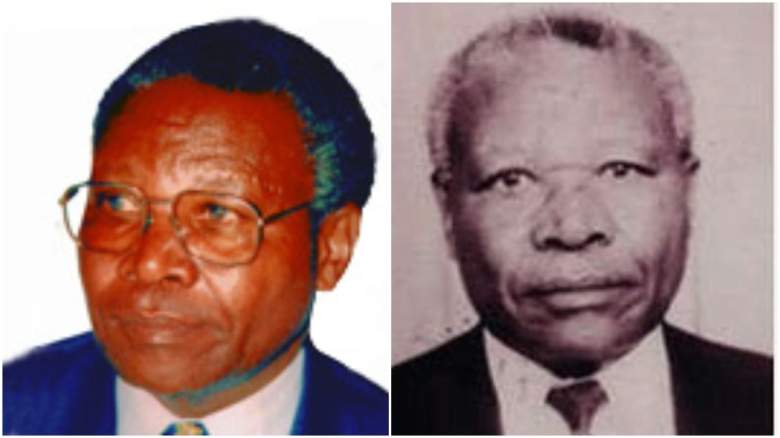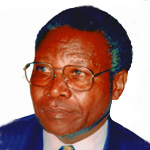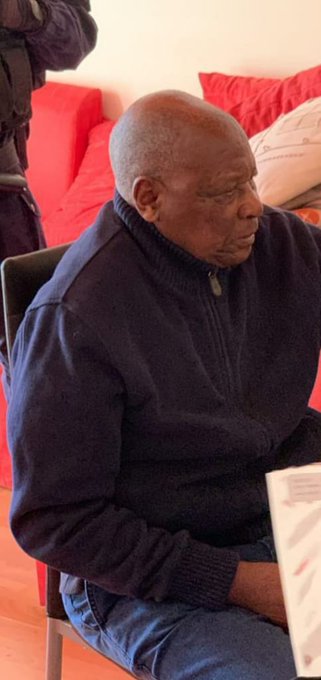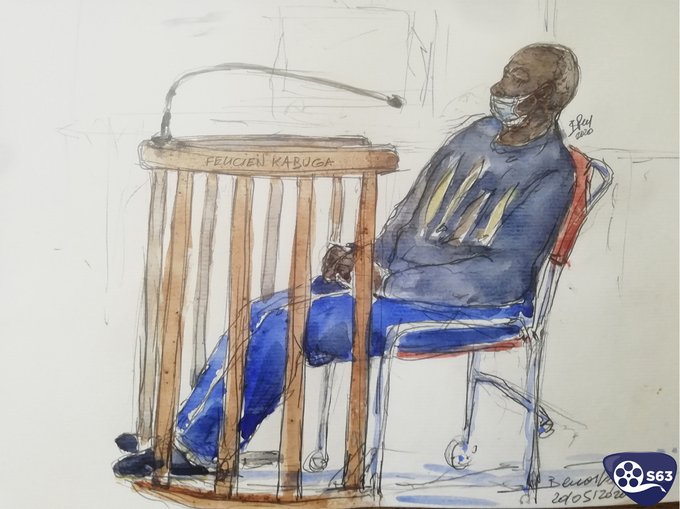
UN Felicien Kabuga
On August 5, a new Netflix documentary series dropped titled World’s Most Wanted, which profiles five different dangerous criminals who have been fugitives of the law and eluded authorities for years. One of the five episodes features Félicien Kabuga, a Rwandan businessman who is believed by the authorities to have financially supported, participated in and profited from the Rwandan genocide.
The United Nations’ International Residual Mechanism for Criminal Trials (IRMCT)’s case file on Kabuga says he was the president of the National Defense Fund in Rwanda and the president of radio station RTLM during the genocide between April and July 1994. The International Criminal Tribunal for Rwanda (ICTR) charged him with: “genocide, complicity in genocide, direct and public incitement to commit genocide, attempt to commit genocide, conspiracy to commit genocide and crimes against humanity.”
Unlike the other fugitives featured on the Netflix series, Kabuga was recently captured and arrested in France, ending 23 years on the run. Authorities were able to track him and identify his location based on monitored communications between Kabuga’s family members.
Here’s what you need to know about Félicien Kabuga’s wife and children:
1. He Was Married to Joséphine Mukazitoni & the Couple Had 11 Children Together

United Nations IRMCTFelicien Kabuga in a UN photo.
Kabuga was born in Munig, Rwanda, on July 19, 1935. Not much is known about his early childhood and his parents, except that they were farmers of limited means. Kabuga was an entrepreneur from an early age, going door to door peddling items and selling used clothes and cigarettes in a market near his home in northern Rwanda. As an adult, he moved to Kigali, where he opened various shops and began expanding his business.
By the early 1990s, he was believed to be one of the richest men in Rwanda, the owner of a tea plantation, a mill and various real estate. In terms of his personal life, Kabuga married Joséphine Mukazitoni and they had 11 children together.
Authorities appeared to be quite certain about the size of his family. According to an article written in The Rwandan after Kabuga’s wife’s death, authorities searched the family home the night before the funeral for information about Kabuga’s whereabouts.
The outlet reported that agents were confident they knew the identity of all of Kabuga’s daughters and were confused by the presence of a young woman that they didn’t know. After requesting that she identify herself, they discovered that she was a cousin of one of Kabuga’s children. In another mention of his 11 children, Reuters reported on a statement jointly issued by his 11 children after Kabuga’s arrest, although their names were not provided.
2. Some of His Daughters Were Married to Prominent Rwandan Men, Including the Former President’s Son
A few of Kabuga’s daughters were married to prominent men, most notably in 1993, when one of his daughters married the eldest son of then-Rwandan president Juvénal Habyarimana. Habyarimana was assassinated on April 6, 1994, when his plane was shot down as it landed in Kigali, sparking the beginning of the genocide.
In fact, one research paper pointed out that two of Kabuga’s daughters married two of the president’s sons: Jean-Pierre Habyarimana married Bernadette Uwamariya and Léon Habyarimana married Françoise Mukanziza. Another of Kabuga’s daughters, Claudine Marie Twagirihirwe, married François Ngirabatware, whose brother was himself married to one of the president’s daughters.
The research paper goes on to show that yet another of Kabuga’s daughters, Winnie Musabayezu, married Eugène Mbarushimana, a top executive and the secretary-general of the interahamwe militia, which spearheaded the genocide.
Another of Kabuga’s daughters was married to Augustin Ngirabatware (not related to François Ngirabatware), who served as the planning minister for Rwanda in 1994. In 2007, Ngirabatware was arrested in Germany and eventually sentenced to 30 years in prison for incitement to genocide. One source close to the Ngirabatware case told Reuters that Kabuga had taken refuge for some time with his son-in-law.
3. Kabuga’s Wife Died in 2017 & Authorities Monitored Her Funeral in Belgium for a Sign of Him
Kabuga was married to Josephine Mukaziton, although there isn’t much information available about their wedding date and his wife’s background in Kenya prior to the genocide. His wife most likely lived with Kabuga in hiding after he went on the run, and the BBC reported that many media outlets believed they were sheltering together in Kenya, though no proof was ever provided.
There is no doubt that his family owned property in Kenya because in 2015, Kabuga’s wife attempted to reclaim a property known as “Spanish Villas” in the country. She was listed as a co-owner, but her claim to the property failed due to a UN resolution freezing Kabuga’s assets.
Kabuga’s wife died at the age of 75 on February 3, 2017, in Belgium. Her cause of death was not provided. According to her obituary, she was buried in Waterloo, Belgium on February 11, 2017. Many news outlets wrote that Kabuga’s wife’s funeral was closely monitored by the authorities hoping to catch sight of the notorious fugitive, but he did not show up.
Her obituary states that she had lived in Belgium for “many years surrounded by her many children.” The article continues that authorities had been harassing the family for years, and it only got worse after Mukaziton’s death. It states that the night before her funeral, several intelligence agents showed up at the family home and “turned it upside down” looking for any indications of Kabuga’s whereabouts.
4. His Children Were Followed & Their Communications Monitored in Order to Track Down & Arrest Kabuga
Kabuga was arrested on May 16, 2020, after a decades-long manhunt for Rwanda’s most wanted criminal. According to French authorities who led the arrest in a Paris suburb, intelligence agents managed to find Kabuga’s whereabouts in a rented apartment by spying on his children. The effort was a collaboration between many agencies in France, the U.K., Belgium, where some of Kabuga’s children live, and Europol.
Eric Emeraux, the head of the Gendarmerie’s Central Office for Combating Crimes Against Humanity, told Reuters, “We realised … that trail from the children protecting their father converged on Asnieres-sur-Seine. We also discovered one of his children was renting an apartment there.” Once they located the apartment, they installed wiretaps and began surveillance on the building and determined that there was a strong possibility that someone other than his child was living there.
Two of his sons were mentioned during the arrest: Alain Habumukiza, who was renting the apartment for his father, and Donatien Nshimyumuremyi, who was present during his father’s arrest. The latter is believed to be based in Belgium but moved to Paris during the coronavirus outbreak to care for the aging Kabuga.
According to other residents of the building, Kabuga may have been living there for three to five years. He had surgery twice in 2019 and received a brain MRI and scans to his stomach and colon in 2016, always using an alias. One of Kabuga’s daughters is said to have accompanied her father to the hospital to translate. Investigators found a money transfer of €10,000 from Kabuga’s daughter Bernadette Uwamariya to the hospital.
5. His Children Have Issued a Joint Statement Since Kabuga’s Arrest Supporting Their Father
Since Kabuga’s arrest, his children have issued statements supporting their father and criticizing French authorities. In a joint statement, they accused the French government of violating his “fundamental human rights” and said he could die in prison from his various ailments, including severe dementia. They said since his arrest and imprisonment on May 16, he’s lost weight and become more confused.
“In recent years he has accumulated many pathologies: diabetes, hypertension and severe senile dementia,” the statement reads, as reported in Reuters. “He also had a colectomy last year. His state of health requires support and constant surveillance, like any weak and dependent elderly person.”
His children wrote that allowing Kabuga to stay in prison in his condition and with his ailing health is a case of his fundamental rights being denied. “It is a cry for help that we are making today to challenge his imprisonment which could be fatal to our father,” they wrote.
READ NEXT: Kathleen Lombardo’s Death: Where Is the Case Today?


